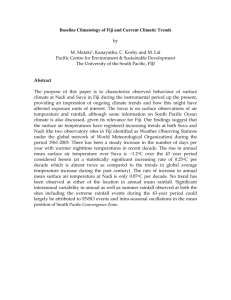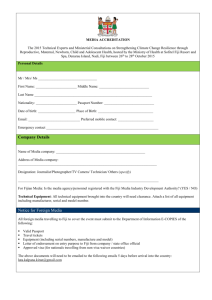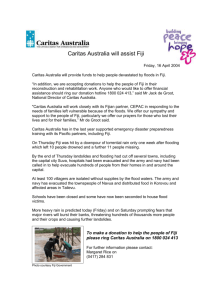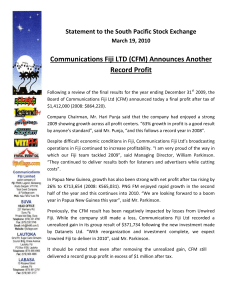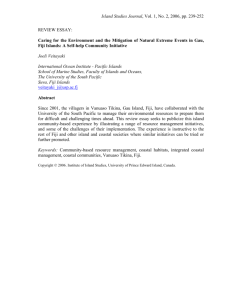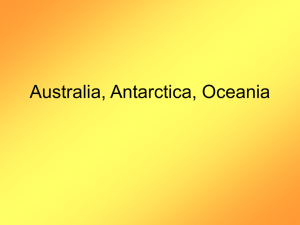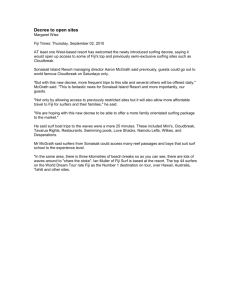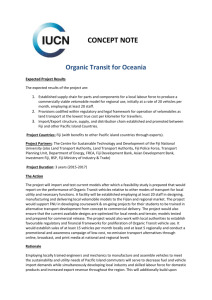SPEAKING NOTES FOR HE JAMES BATLEY, HIGH
advertisement
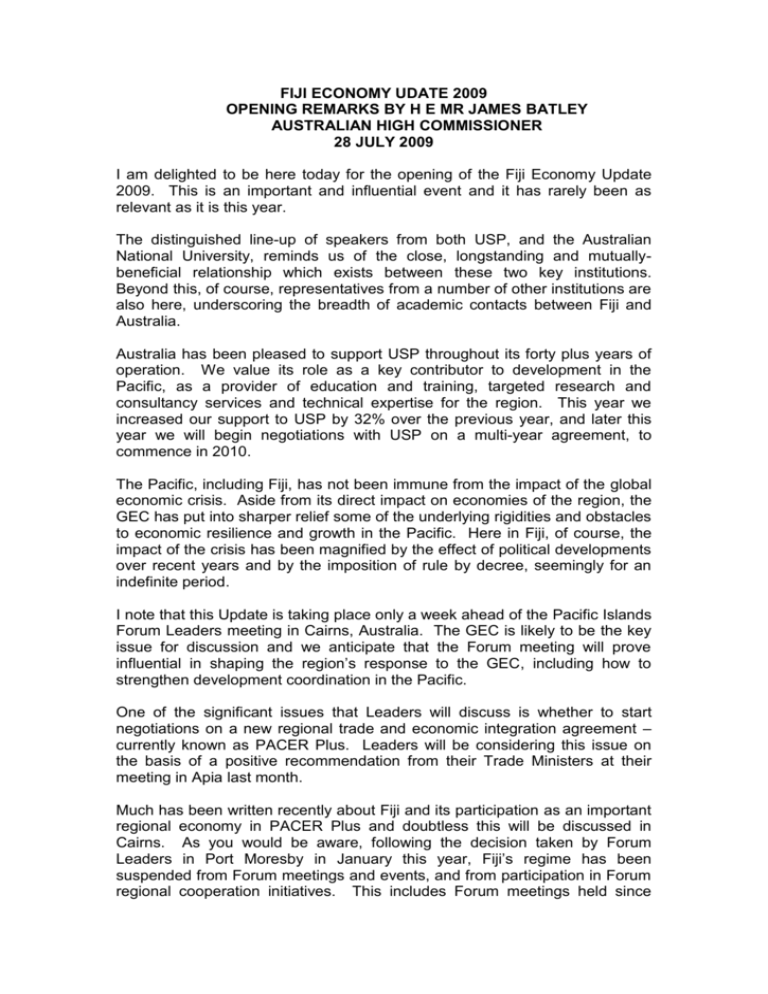
FIJI ECONOMY UDATE 2009 OPENING REMARKS BY H E MR JAMES BATLEY AUSTRALIAN HIGH COMMISSIONER 28 JULY 2009 I am delighted to be here today for the opening of the Fiji Economy Update 2009. This is an important and influential event and it has rarely been as relevant as it is this year. The distinguished line-up of speakers from both USP, and the Australian National University, reminds us of the close, longstanding and mutuallybeneficial relationship which exists between these two key institutions. Beyond this, of course, representatives from a number of other institutions are also here, underscoring the breadth of academic contacts between Fiji and Australia. Australia has been pleased to support USP throughout its forty plus years of operation. We value its role as a key contributor to development in the Pacific, as a provider of education and training, targeted research and consultancy services and technical expertise for the region. This year we increased our support to USP by 32% over the previous year, and later this year we will begin negotiations with USP on a multi-year agreement, to commence in 2010. The Pacific, including Fiji, has not been immune from the impact of the global economic crisis. Aside from its direct impact on economies of the region, the GEC has put into sharper relief some of the underlying rigidities and obstacles to economic resilience and growth in the Pacific. Here in Fiji, of course, the impact of the crisis has been magnified by the effect of political developments over recent years and by the imposition of rule by decree, seemingly for an indefinite period. I note that this Update is taking place only a week ahead of the Pacific Islands Forum Leaders meeting in Cairns, Australia. The GEC is likely to be the key issue for discussion and we anticipate that the Forum meeting will prove influential in shaping the region’s response to the GEC, including how to strengthen development coordination in the Pacific. One of the significant issues that Leaders will discuss is whether to start negotiations on a new regional trade and economic integration agreement – currently known as PACER Plus. Leaders will be considering this issue on the basis of a positive recommendation from their Trade Ministers at their meeting in Apia last month. Much has been written recently about Fiji and its participation as an important regional economy in PACER Plus and doubtless this will be discussed in Cairns. As you would be aware, following the decision taken by Forum Leaders in Port Moresby in January this year, Fiji’s regime has been suspended from Forum meetings and events, and from participation in Forum regional cooperation initiatives. This includes Forum meetings held since 2 May, at which decisions have been taken on PACER Plus. Australia’s position on this is that we will welcome Fiji back as a full participant in PACER Plus negotiations, but not until concrete steps are taken to return Fiji to democracy and the rule of law. Subject to the decisions taken by Forum Leaders at next week’s Forum meeting, and on the basis of the decision made by Leaders when they met in Port Moresby in January, we remain open to considering options for keeping Fiji informed on PACER Plus developments. All that said, the trading relationship between Fiji and Australia continues to be a strong one, reflecting the strong linkages across the board between our countries. Fiji continues to benefit from privileged access to the Australian market under existing international agreements and arrangements, including SPARTECA and SPARTECA-TCF. Contrary to what you might read in some publications, economic sanctions are not being contemplated. Australia is also serious about providing direct support for Fiji’s export-related sectors. This assistance is, of course, consistent with Australia’s long history of assistance in Fiji, where we also maintain significant programs of assistance in the education and health sectors, as well as working on community sector development. Australia is providing up to F$3.28 million in support to Fiji’s TCF industry. This program is helping the industry through improvements in efficiency, productivity, quality and market reach. This year we also granted Fiji’s TCF industry a reduction in the Minimum Local Area Content from 35% to 25%, thereby lifting the number and type of garments able to be exported duty-free to Australia. Fiji is also benefitting from its inclusion in an Australian Government pilot program, the Enterprise Challenge Fund, a program which provides grants direct to commercially viable business projects which improve livelihoods, incomes, and access to vital goods and services for local communities. I’m pleased that, so far, two export-oriented firms in Fiji have received grants through this highly competitive scheme: Nature’s Way Cooperative and Future Forests Fiji Ltd. As a neighbour with a significant stake in Fiji’s economy, who wants to see Fiji fulfil its economic potential, Australia has a keen interest in this Update. I hope it can make a genuine contribution to public debate on the economy here in Fiji. At a time when freedom of speech is heavily restricted, it is imperative that the University fulfils its traditional role of providing a space for the free and respectful exchange of ideas and opinions, free from coercion or intimidation. I wish you all well in your deliberations.
